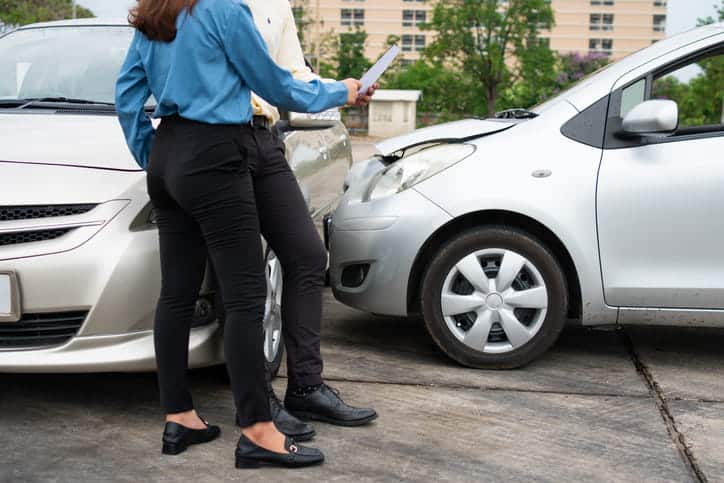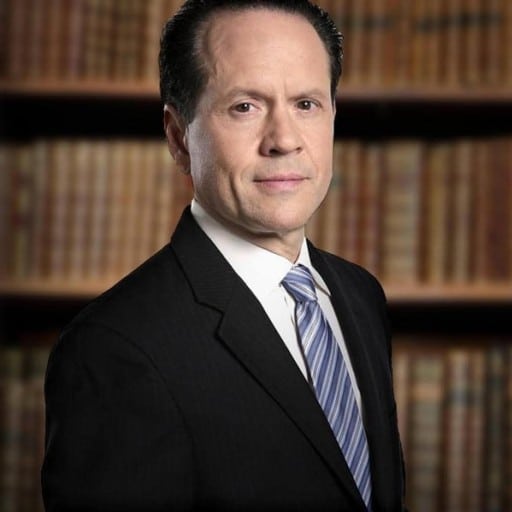Can a Car Owner Be Sued for Another Driver’s Accident?
When a car owner allows someone else to drive their vehicle, they may be liable for any accidents that occur. This is known as vicarious liability, and it raises the question: Can a car owner be sued for another driver’s accident? If you have been in a car accident and sustained injuries, it is crucial to know who may be held responsible when the driver is not the owner of the vehicle that hit you. It is also highly recommended to consult with a Miami car accident attorney due to the complexity of these types of cases.

NO FEES UNLESS WE WIN
Protecting Your Rights Since 1983
For more insight into your case, contact our team for a free consultation today.
Hablamos Español
Vehicle Owner’s Liability Under Florida Law
The owner of the vehicle can be sued for the accident by another driver. In Florida, vehicle owners can be held liable when someone else drives their car with permission. Florida law’s Dangerous Instrumentality Doctrine makes owners vicariously liable for damages, even if not driving. The Florida Supreme Court established vehicles as inherently dangerous.
Times When a Third Party Can Be Sued After a Car Accident
There are three different situations where a third party can be sued after a car accident in Florida:
- Vehicle owners: If a car owner allows another person to drive their vehicle and that driver is involved in an accident, the owner may be liable under vicarious liability laws and the Dangerous Instrumentality Doctrine. This holds true when the driver has permission to drive the vehicle. However, the owner is not liable if the car was stolen.
- Drunk driving accidents: If a person provides alcohol to someone they know is intoxicated and that individual then causes an accident while driving under the influence, the provider of alcohol could be liable for any resulting damages
- Employers of negligent drivers: If an employee causes an accident while performing work duties or using a company vehicle, the employer may also be held responsible for any injuries or property damage caused by their employee’s negligence
Vehicle Liability: Owner vs Driver
Florida car accident liability splits between vehicle owner (vicarious via Dangerous Instrumentality) and driver (direct negligence). Owners bear liability when lending to permitted drivers and drivers face personal liability for recklessness. Multiple parties often share fault under comparative negligence.
When Is the Vehicle Owner Held Liable?
Vehicle owner is held liable if the driver had explicit permission, with exceptions in the cases of theft, non-permissive use, shop rule (repair technicians) and more. Florida Statute 324.021 caps owner vicarious liability at $100K/person and $300K/accident.
Can a Car Owner Be Sued for Another Driver’s Accident?
If the owner knowingly lends their vehicle to someone they know is an unsafe driver or someone considered an at-risk driver, they could also be liable for the driver’s negligence. For example, if you let a friend who you know has a suspended license or has a history of DUIs borrow your vehicle and they cause an accident, you could also be found directly negligent and responsible.
Negligent Entrustment: Direct Owner Liability
Vehicle owners face direct liability via negligent entrustment which is lending to unlicensed, impaired, or reckless drivers (known DUIs, someone with license suspension). This exceeds Dangerous Instrumentality, exposing personal assets. Thus, vehicle owners are to ensure borrower competence before lending.
Married Couples and Family Member Liability
Spouses share liability if the vehicle is titled jointly. Household drivers (family members) often listed on policies increase owner exposure. Lending to friend or family member triggers same vicarious liability rules.
Dangerous Instrumentality Doctrine
The Dangerous Instrumentality Doctrine holds vehicle owners responsible for any damages or injuries caused by the operation of their vehicle, regardless of whether they were personally driving at the time. This doctrine imposes strict liability on vehicle owners based on the idea that cars are inherently dangerous instruments and, therefore, owners should bear some responsibility for ensuring their safe use.
Under this doctrine, if a driver with permission to operate a vehicle is involved in an accident, the car’s owner can be liable for any resulting harm. This applies even if the owner was absent during the accident or did not directly contribute to it. The purpose of the doctrine is to ensure car owners take precautions when allowing others to use their vehicles.
However, certain exceptions exist where the vehicle owner will not be considered vicariously liable for the accident. The first is the shop rule, which applies to valet parking attendants, auto repair technicians, and body shop employees. If one of these people drives your vehicle and causes an accident, you are not responsible.
The next exception is for rental car companies. When renting a vehicle, they are protected by Grave’s Amendment, which excludes them from liability when someone rents a car and causes an accident. However, if it can be established that the rental car company negligently rented to someone they should not have, then they could still be held liable.
Exceptions to Dangerous Instrumentality Doctrine
Florida law exempts owner liability if:
1) Vehicle stolen (file police report, use comprehensive insurance)
2) Shop rule applies (valets, mechanics)
3) Sold but title not transferred
4) Non-permissive use by driver
Rental cars are protected by Graves Amendment.
How Insurance Works: Owner vs Driver Policies
Florida car insurance follows the vehicle, not driver – your policy pays first if someone borrows your car and crashes. Owner’s liability coverage responds to the accident even if someone else was driving. Driver’s policy excess if higher limits. Florida’s no-fault requires $10K minimum PIP insurance that covers medical bills regardless of fault
Florida No-Fault Insurance System
Every registered vehicle owner carries PIP insurance covering 80% medical expenses up to $10K, regardless of fault. If damages exceed PIP limits, injured party sues at-fault driver/owner. Bodily injury liability kicks in for serious injuries.
What if the driver is uninsured?
The owner’s policy is primary; uninsured driver leaves the owner financially responsible up to policy limits. UM/UIM coverage protects you if you are hit by an uninsured at-fault driver in your vehicle.
Does Insurance Cover Liability When a Permitted Driver Injures Someone in a Crash?
When someone is permitted to drive another person’s vehicle and is involved in an accident injuring others, the owner’s auto insurance policy may cover the resulting damages. If the driver also has auto insurance, then their policy may also cover injuries to others.
What Damages Can You Pursue if You Have Been Injured in a Car Accident?
If you have been injured in a car accident, generally, you can pursue economic and non-economic damages.
Economic Damages
These are actual financial losses that result from the accident, including:
- Medical expenses
- Lost wages or income due to inability to work
- Property damage
Non-Economic Damages
Non-economic damages are quantified losses based on how the accident has affected your quality of life and include:
- Pain and suffering
- Emotional distress
- Loss of enjoyment
- Mental anguish
- Disfigurement or permanent disability
Limits on Damages in Florida
Florida has a no-fault insurance system, meaning drivers must first seek compensation from their own insurance policies regardless of who caused the accident. Personal injury protection (PIP) coverage typically provides up to $10,000 in medical and disability benefits.
Once that cap is reached, the injured party may seek additional compensation against the responsible party and vehicle owner. Essentially, there are no caps on economic and non-economic damages other than the amount of insurance coverage the person has.
Should that be reached, the injured party can seek further compensation directly from the driver and vehicle owner. The only cap is on punitive damages, which is three times the economic damages or $500,000, whichever is greater.
Steps After Another Driver Crashes Your Car
1. File police report immediately
2. Notify insurance company (even if not driving)—your policy primary
3. Don’t admit fault or discuss liability
4. List all household drivers on policy
5. Consult car accident attorney for potential car accident lawsuit against multiple parties
If You Have Been Injured in a Car Accident, Call Bernstein & Maryanoff Injury Attorneys Today
Do not hesitate to seek legal advice after being injured in a car accident. Call Bernstein & Maryanoff Injury Attorneys today for expert legal guidance and representation. Our experienced team is here to help you understand your rights, navigate the complex legal process, and fight for the compensation you deserve. Let us advocate for your best interests while you focus on healing and recovery during this challenging time.
Frequently Asked Questions (FAQs)
About the Author

Jack G. Bernstein, ESQ.
Jack G. Bernstein, Esq., is a seasoned Miami personal injury lawyer who started his law practice in 1983. A detail‑oriented legal strategist with decades of experience in representing victims of auto, truck, motorcycle and slip‑and‑fall accidents, he is currently a member of the Florida Bar Association. He is admitted to practice before the State and Federal Courts of Florida, offering free, no‑obligation case reviews to injured clients and advocating for maximum compensation in car accidents, wrongful death, catastrophic injury cases and more.
